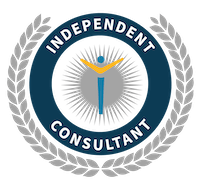The single most significant challenge for employers who have recently deployed a new CRM system is getting people to use it.

While things can be done during the planning and deployment phase of the process to improve user adoption, there will inevitably be some resistance to using CRM no matter how well executed your implementation strategy is.
What Is A “CRM Hater”?
CRM haters are the employees that, no matter how hard you try to convince, cajole, and coerce them into using your new CRM system, refuse to use it. In a worst-case scenario, they may even actively protest against using it to management and other employees.
Unfortunately, sometimes all it takes is one bad apple to spoil the bunch, and an employee spreading fear, uncertainty, and doubt about your CRM system may eventually cause others to question its validity and/or usefulness.
Employees who show entrenched resistance to using CRM usually do so because of one or more fears they have (even if they won’t admit to it) that need to be addressed before they’re willing to embrace change.
Addressing Common CRM Fears
While every employee’s resistance to CRM will be slightly different, there are some common fears that many employees have about CRM that can cause them to push back on using it.
Fear of change: Employees often have developed their own way of doing things and don’t see any reason why they should abandon a system that works for them. This is especially true for industries that have not traditionally integrated a lot of technology into their sales and marketing processes.
Suddenly moving from a system of sticky notes and spreadsheets to CRM can seem daunting. Employees must understand the rationale for the change, as well as the benefits to them for making it.
Overcoming this fear may require extended training, demonstration, and reinforcement of the organization’s commitment to CRM as the requisite method of data capture for all employees.
Fear of transparency: This is a common fear of employees with poor job performance. CRM makes it much easier for management to view, track, and analyze each user’s performance on a daily basis. This transparency removes an underperforming employee’s ability to hide and/or obfuscate what they’re doing (or not doing).
Overcoming this fear can be particularly difficult, if not impossible, in some cases. There is often no way to convince an employee who is purposefully hiding their lack of effort to commit to a system that will almost immediately expose that fact to management.
The best option in this case is to make clear that using CRM is a requirement, not an option. The adage “If it’s not in CRM, it doesn’t exist” should be well understood, and underperforming employees will have to either step up, or be forced to explain themselves.
In some cases, underperforming employees may have unknowingly developed bad habits that have led to poor performance. In those cases, CRM can help management discover and correct the issue, and bring an employee’s performance up to a higher level.
Fear of failure: This one is tricky. An employee who is great at all other aspects of their job may struggle with CRM, despite their best efforts. These employees fear that their struggle to adapt to the new system will be read as an overall performance failure by management, and their jobs will be at risk.
This is another situation where a strong CRM training program can make all the difference. Employees who feel confident in their ability to navigate the system won’t be afraid of using it.
The best outcome is for management to proactively address questions and concerns about using the system on an ongoing basis. Making sure the system has a clearly defined administrator that users can go to for help is another excellent way to ensure success.
Where To Draw The Line
If you organization is struggling with user adoption due to employee resistance, it may help to take a step back and try to diagnose what true cause might be. Many businesses that run into this problem simply abandon CRM altogether. Worse, others give up on comprehensive user adoption, and let those who don’t want to use CRM go their own way and fragment company data and workflow.
Your organization will need to decide how committed to CRM it really is. If the answer is “totally” – which it should be – then you’ll need to decide where to draw the line with resistant employees and how to overcome that resistance.
A final option is to consider working with an outside CRM implementation consultant to help diagnose user adoption problems. Implementation specialists can frequently identify points of friction that management was unaware of. Small changes and/or customizations to your CRM can have a huge impact on usability. Having a professional peek under the hood may be worth the investment before taking more drastic measures.


